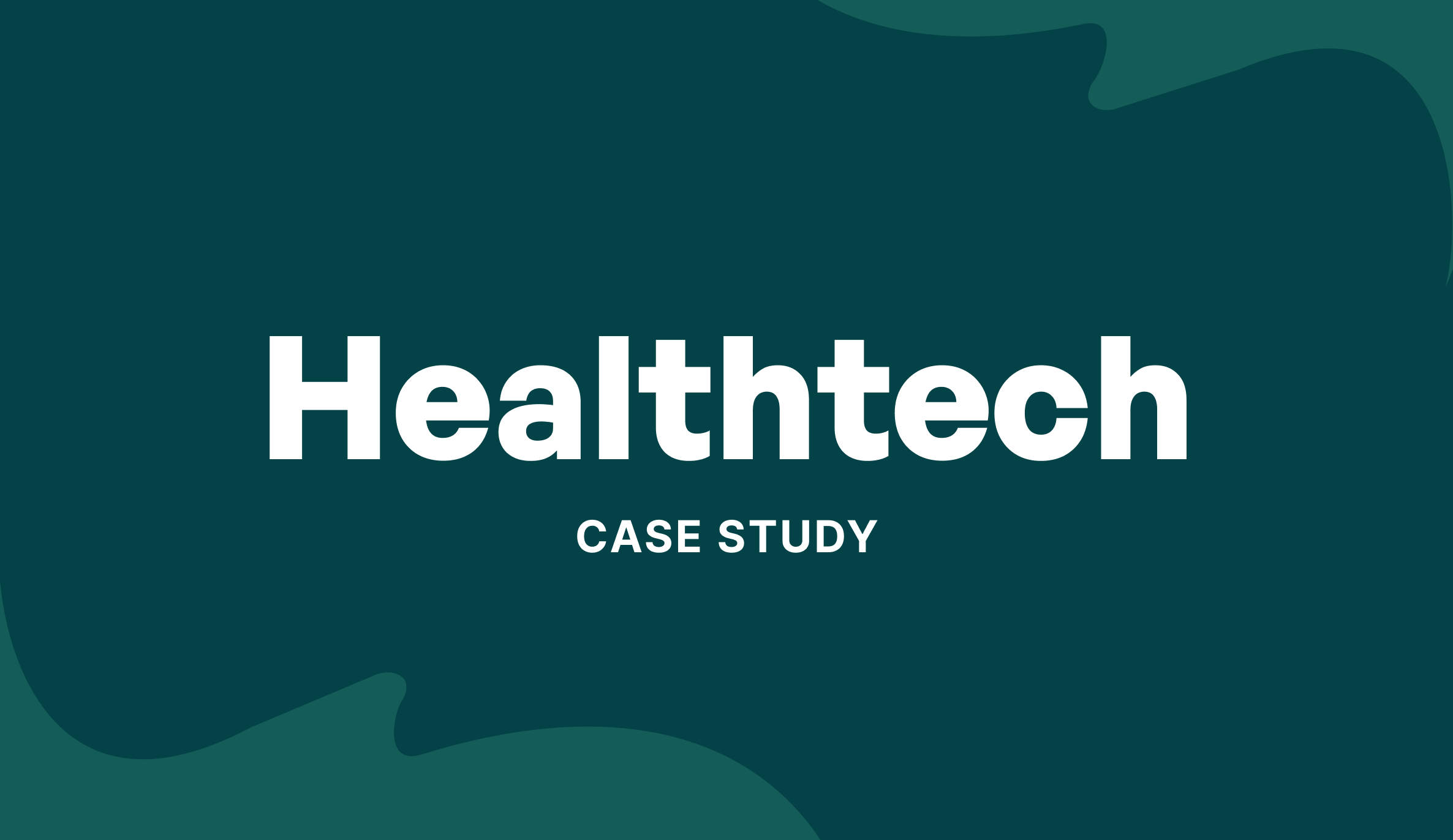As an early-stage AI platform for the consumer packaged goods (CPG) industry, Goods needed a fast, efficient way to launch its infrastructure without getting bogged down in DevOps. Gruntwork helped them set up a production-ready AWS environment and CI/CD pipeline in a matter of hours — not months. That early momentum gave Goods a stable technical foundation, saved budget and time, and signaled maturity to investors and early hires.
"We’ve been around five quarters and only thought about infrastructure for maybe six to eight weeks. Without Gruntwork, we’d have spent a developer’s half-year on it and still not gotten the same result," said Mark Moore, CTO at Goods.
Key results
- Built a fully operational AWS infrastructure and CI/CD pipeline in weeks instead of months
- Avoided hiring full-time DevOps engineers, saving months of headcount and runway
- Gave early hires and advisors confidence in the stability and maturity of the platform
Mark Moore was the company’s first employee and now serves as CTO. With a background in enterprise SaaS and experience as a fractional CTO for various startups, Goods brought him on to get the first MVP out to market, build the engineering team, and create a solid technical foundation from day one. Moore had seen firsthand how much time and budget startups waste by rebuilding infrastructure from scratch or hiring full-time DevOps engineers too early. This time, he wanted to do things differently.
"I’d already been thinking about Gruntwork before Goods even existed; when I joined, it was at the top of my list. I wasn’t interested in cobbling together infrastructure again or throwing a bunch of money at a DevOps team." — Mark Moore, CTO at Goods
Some advisors questioned whether it made sense to commit to a vendor so early. But for Moore, it was about speed and sanity. He wanted the team focused on product, not pipelines.
There wasn’t really a “before Gruntwork” phase at Goods. Gruntwork was the first contract Moore signed as CTO. He knew that putting a stable, scalable foundation in place early would pay off—and that it didn’t have to be a long, painful process.
Building fast without full-time DevOps hires
With a handful of hour-long calls, the Goods team went from zero to a fully working AWS EKS cluster complete with a segmented VPC, RDS, various supporting services like SQS/S3 and a CI/CD pipeline. Gruntwork’s documentation and support guided them through every step. Moore described it as using Gruntwork like a plug-in DevOps team for the first few weeks—then getting out of the way.
"They walked us through everything. We didn’t have to think about ops architecture; we could focus on building the app. It just worked." — Mark Moore, CTO at Goods
Behind the scenes, the Gruntwork team helped troubleshoot edge cases and fine-tune the setup in real-time. Moore recalls moments where they'd say, "This is a rough spot, give me 20 minutes and I’ll fix it for you." The team was responsive, fast, and seemed to have answers ready—helping Goods stay focused and keep momentum.
The fast start had a ripple effect. Moore’s internal advisors and early technical hires were impressed by the clarity of the setup. When they asked about CI/CD and AWS, he could point to a clean, well-organized system that made them feel confident.
Launch-ready infrastructure in record time
Infrastructure setup can take months and drain the budget. Goods didn’t have that kind of time. With a small team and pressure to launch fast, they needed something stable and scalable—without building it all from scratch. Gruntwork gave them a way to get there fast without cutting corners.
Faster setup, stronger first impression
Beyond the internal benefits, Gruntwork helped Goods avoid the trap of hiring too early. "We would’ve needed a developer spending a quarter or more of their time just managing infrastructure. With Gruntwork, we skipped that entirely," Moore said.
The foundation they put in place held up well. For over a year, the team barely had to touch it. When it was time for updates, the Gruntwork team helped them catch up quickly. "We just didn’t have to think about infra most of the time," Moore said. "And when we did, support was there."
The stability gave them more than time savings — it let the team stay focused on the product.
“We didn’t want to become infrastructure experts. We wanted to become product experts. Gruntwork helped us stay focused on that.” — Mark Moore, CTO at Goods
Scaling confidently, with compliance in mind
Scaling and compliance are no longer stress points for Goods — thanks to the early decisions Moore made with Gruntwork. "Compliance doesn’t stress me out nearly as much as it would have if we’d patched something together ourselves," Moore said.
The team relied heavily on the CI/CD setup and the standardized pathways for deploying infrastructure. This gave them the structure to move quickly and avoid time-wasting infrastructure debates.
It’s a reminder that early-stage companies don’t need to build everything from scratch to get enterprise-grade results.
"It felt like working with people who actually understand startups," he said. "They were flexible on budget, responsive when we needed help, and just easy to work with. That goes a long way." — Mark Moore, CTO at Goods
A model for lean, resilient infrastructure
Goods’ early success with Gruntwork highlights how a smart infrastructure strategy can help startups move fast without cutting corners. Rather than rely on ad hoc fixes, they committed to a scalable foundation that supports growth and avoids unnecessary complexity.
Having a stable foundation from the start gave them room to scale without technical debt slowing them down. Their story shows what’s possible when startups focus on clarity and partner with teams who understand what it’s like to build from zero.
“Infrastructure doesn’t have to be a time sink. Gruntwork helped us skip the pain and stay focused on what matters.” — Mark Moore, CTO at Goods
Goods shows how early-stage teams can stay lean, move fast, and focus on the product — not the infrastructure.



- No-nonsense DevOps insights
- Expert guidance
- Latest trends on IaC, automation, and DevOps
- Real-world best practices




